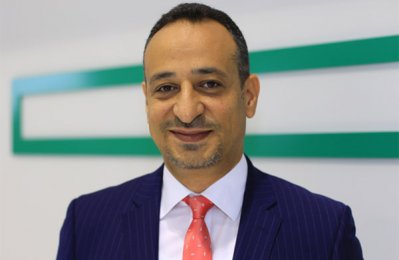Aruba, a Hewlett Packard Enterprise company is aiming to play a big role in the digital transformation of the educational sector in the UAE by providing innovative mobility solutions for the next generation wireless classroom.
Gamal Emara, country manager –UAE at Aruba said: “As part of UAE Vision 2021, the country’s Ministry of Education is very keen to introduce and support e-learning initiatives, like the Mohammed bin Rashid Smart Learning project for instance, to develop the educational process and improve the quality of instruction and learning. This will in turn transform the country into a digitally empowered society and a knowledge economy.”
“The basic foundation of an ‘Optimized Digital Classroom’ that supports 21st century learning is a next generation, robust and intelligent wireless infrastructure that lets everyone thrive when they use wi-fi enabled devices and apps that create a richer learning experience. Aruba being a world leader in wired &wireless networking, is taking the lead in working with public and private educational institutions in UAE and introducing the latest technologies that help build the optimized Digital Classroom for mobile first learning,” he added.
The innovations include the latest Wave 2 802.11ac Wireless Access Points (APs) with public cloud, private cloud and on-premises management providing gigabit speed, secure and seamless internet access across the entire educational campus.
Teachers and students are increasingly using video, gaming and even social media to enrich learning and collaboration. This potentially exposes them to malicious and/or inappropriate content. Aruba Policy Enforcement Firewall (PEF) delivers intelligent mobile security based on its knowledge of mobile apps, devices and malicious URLs.
Aruba supports the Bring Your Own Device (BYOD) trend. Students, teachers, staff, and guests connecting to the school network with a variety of personal devices create a tough challenge for IT. Aruba ClearPass simplifies device onboarding with self-enrolment and grants network access privileges based on user roles, device types and location.
“It’s evident that today’s #GenMobile students are showing up in classrooms knowing more about technology than previous generations. Classrooms are changing and are shifting away from rows of desks, to an environment that promotes collaboration between students, teachers and learning devices,” said Emara.
“Textbooks are being swapped out for mobile devices that provide up-to-date content in real time. Printed exams are transitioning to online assessments. 1:1 and BYOD initiatives are replacing wired computer labs. Skype and Google Hangouts are fuelling new study groups.
“And personalized learning programs are developed to meet the individual needs of each student. Technology is transforming the way we educate our children. Schools are adopting these initiatives to deliver a rich learning experience by engaging students to use the devices and applications they thrive on,” he added.
Aruba Beacons, Aruba Sensors, and the Meridian App provide school systems a complete solution for mobile engagement for the campus. Beacons placed across the campus find registered mobile devices and allow for students to interact with customized wayfinding applications built by Meridian.
Additionally, these technologies give campus administration the ability to see where students are located and send push notifications to students in all or specific locations. Aruba’s mobile engagement solutions help institutions engage with students, encourage school participation and ultimately improve the quality of life and student experiences during their school and college years.
“We are very proud to be actively involved in a lot of ‘smart classroom’ developments across UAE and look forward to offering our expertise and technology to government entities and educational institutions in the country,” Emara said.
“With the right network infrastructure planning, educational institutions can empower teachers and students to leverage the latest technology in devices and applications for a richer learning experience while streamlining IT operations across campus.
“As IoT comes of age, it is important for organizations to look for network solutions that provide the connectivity and management capabilities that IoT devices will require as they become more pervasive, as well as secure their infrastructure against the new threats these devices can potentially introduce,” concluded Emara. – TradeArabia News Service
Aruba to offer technology for wireless classrooms

Gamal Emara

&uuid=(email))